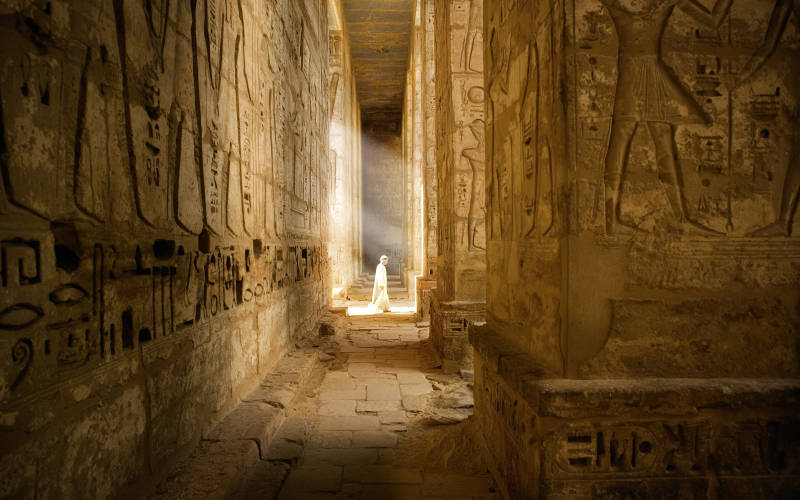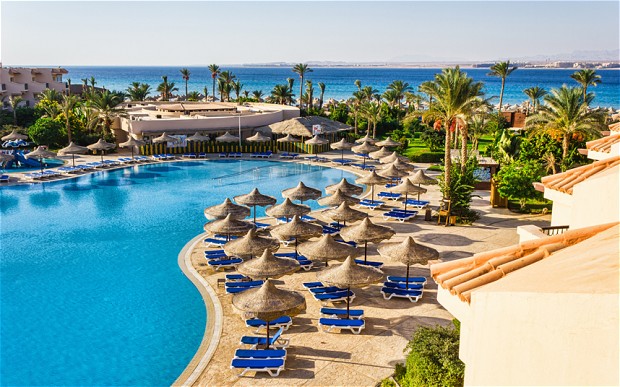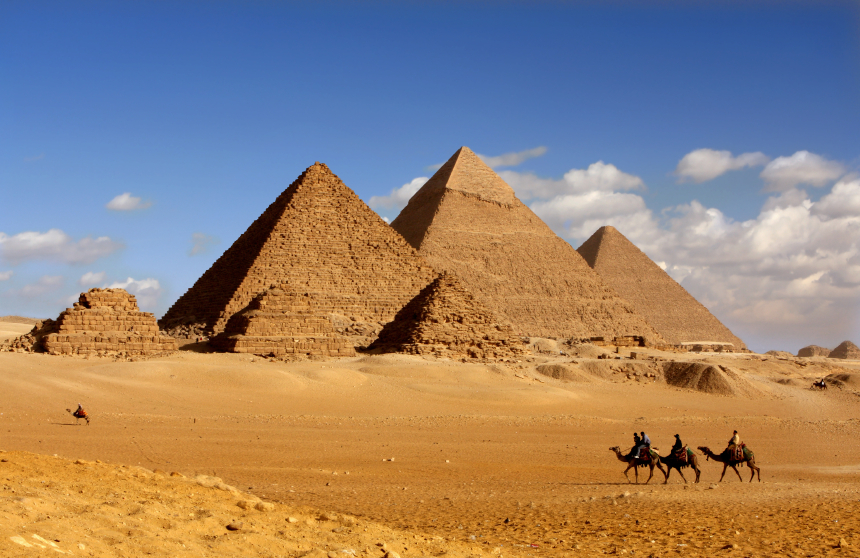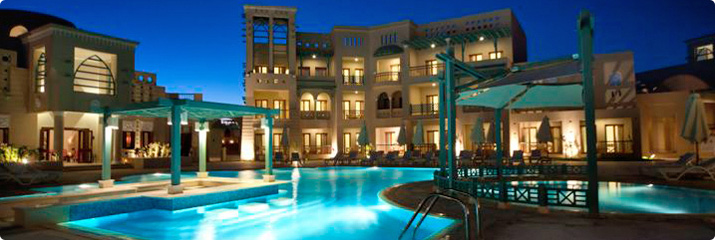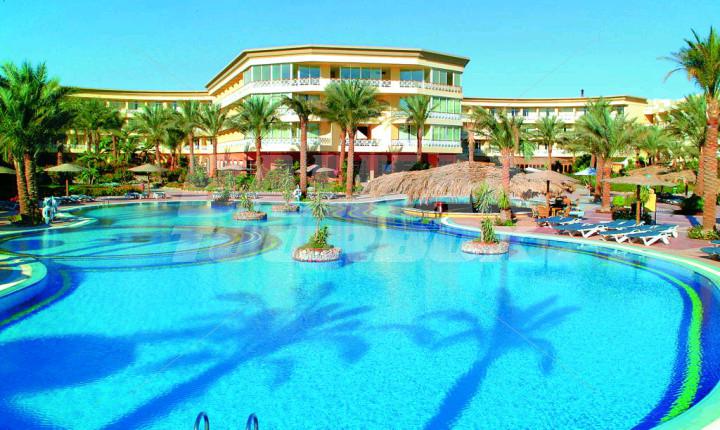Egypt (Arabic: مِصر Miṣr, Egyptian Arabic: مَصر Maṣr), officially the Arab Republic of Egypt, is a transcontinental country spanning the northeast corner of Africa and southwest corner of Asia, via a land bridge formed by the Sinai Peninsula. It is the world's only contiguous Eurafrasian nation and most of Egypt's territory of 1,010,408 square kilometres (390,000 sq mi) lies within the Nile Valley. It is a Mediterranean country and is bordered by the Gaza Strip and Israel to the northeast, the Gulf of Aqaba to the east, the Red Sea to the east and south, Sudan to the south and Libya to the west.
Egypt has one of the longest histories of any modern country, arising in the tenth millennium BC as one of the world's first nation states. Considered a cradle of civilization, Ancient Egypt experienced some of the earliest developments of writing, agriculture, urbanisation, organised religion and central government in history. Iconic monuments such as the Giza Necropolis and its Great Sphinx, as well the ruins of Memphis, Thebes, Karnak, and the Valley of the Kings, reflect this legacy and remain a significant focus of archaeological study and popular interest worldwide. Egypt's rich cultural heritage is an integral part of its national identity, having endured and at times assimilated various foreign influences, including Greek, Persian, Roman, Arab, Ottoman, and European. Although Christianised during the common era, it was subsequently Islamised due to the Islamic conquests of the 7th century.
With over 89 million inhabitants, Egypt is the most populous country in North Africa and the Arab World, the third-most populous in Africa (after Nigeria and Ethiopia), and the fifteenth-most populous in the world. The great majority of its people live near the banks of the Nile River, an area of about 40,000 square kilometres (15,000 sq mi), where the only arable land is found. The large regions of the Sahara desert, which constitute most of Egypt's territory, are sparsely inhabited. About half of Egypt's residents live in urban areas, with most spread across the densely populated centres of greater Cairo, Alexandria and other major cities in the Nile Delta.
Modern Egypt is considered to be a regional and middle power, with significant cultural, political, and military influence in North Africa, the Middle East and the Muslim world. Its economy is one of the largest and most diversified in the Middle East, with sectors such as tourism, agriculture, industry and services at almost equal production levels. In 2011, longtime President Hosni Mubarak stepped down amid mass protests. Later elections saw the rise of the Muslim Brotherhood, which was ousted by the army a year later amid mass protests.
Tourism is one of the most important sectors in Egypt's economy. More than 12.8 million tourists visited Egypt in 2008, providing revenues of nearly $11 billion. The tourism sector employs about 12% of Egypt's workforce. Tourism Minister Hisham Zaazou told industry professionals and reporters that tourism generated some $9.4 billion in 2012, a slight increase over the $9 billion seen in 2011.
The Giza Necropolis is Egypt's most iconic site. It is also Egypt's most popular tourist destination since antiquity, and was popularised in Hellenistic times when the Great Pyramid was listed by Antipater of Sidon as one of the Seven Wonders of the World. Today it is the only one of those wonders still in existence.
Egypt has a wide range of beaches situated on the Mediterreanean and the Red Sea that extend to over 3,000 km. The Red Sea has serene waters, coloured coral reefs, rare fish and beautiful mountains. The Akba Gulf beaches also provide facilities for practising sea sports. Safaga tops the Red Sea zone with its beautiful location on the Suez Gulf. Last but not least, Sharm el-Sheikh (or City of Peace), Hurghada, Luxor (known as world's greatest open-air museum/ or City of the 1/3 of world monuments), Dahab, Ras Sidr, Marsa Alam, Safaga and the northern coast of the Mediterranean are major tourist's destinations of the recreational tourism.
With a lot of touristic activities in Egypt it's considered a fun place for historical, religious, medical and entertainment tourism. To enter Egypt, it is necessary to have a valid passport and in most cases a visa. In addition to UK and EU nationals, citizens of the following countries can obtain visa upon arrival at any of the Egyptian ports of entry: Australia, Canada, Croatia, Georgia, Japan, New Zealand, Norway, Macedonia, Republic of Korea, Russian Federation, Serbia, Ukraine and USA. Nationals from UK, EU and USA traveling to Sharm El Sheikh, Dahab, Nuweiba and Taba resorts, for a maximum of 15 days, do not require a visa prior to traveling as a free entry permission stamp will be granted upon arrival.




